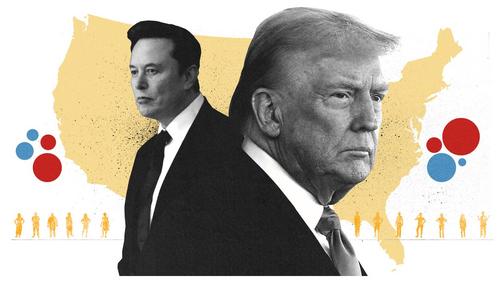Doge today
DOGE Layoffs Leave Labor Talks in Chaos as Federal Mediation Agency Shutters

In late March, Isael Hermosillo—one of the nation’s trusted federal labor mediators—was preparing for a day of negotiations between Southern California grocery chains and union reps when his entire career was suddenly put on hold.
By 9 a.m., Hermosillo was told he was being placed on administrative leave and that his job was effectively over.
He wasn’t alone.
On March 26, the Department of Government Efficiency (DOGE), under the Trump administration, abruptly terminated 130 federal mediators and shut down much of the Federal Mediation and Conciliation Service (FMCS)—a 79-year-old agency vital to resolving labor disputes across the country.
The move stunned labor leaders, grocery store chains, and even government officials. With labor contracts for 55,000 unionized grocery workers in California recently expired, the mediators’ departure left negotiations hanging by a thread.
“We’ve gotten very close to going on strike many times,” said UFCW Local 770 President Kathy Finn. “Isael [Hermosillo] helped avert that. He was trusted by both sides.”
Now, that trust and institutional knowledge are gone.
The FMCS, though small and largely invisible to the public, has mediated thousands of contract negotiations annually—many of them for high-stakes industries. From grocery chains to government agencies, FMCS mediators prevent costly strikes and maintain the flow of commerce by offering neutral, cost-free conflict resolution.
Former mediator Tina Littleton said the role is often underappreciated. “It doesn’t matter whether it’s a big or small employer—our job is to keep negotiations productive and prevent work stoppages,” she explained.
But with DOGE’s aggressive cost-cutting and decision to retain only five mediators for the entire country, union officials say chaos is now inevitable.
“We’re already seeing the consequences,” said Martha Figueroa of the California Federation of Teachers. “Private mediators are expensive, and drawn-out talks only make things worse for everyone.”
In response to the sudden dismantling of FMCS, UFCW and a dozen major unions filed a lawsuit in federal court, arguing that the Trump administration’s move bypasses congressional authority. The suit also highlights that FMCS, with a modest $54 million budget, actually saves the U.S. economy more than $500 million annually by avoiding strikes and legal battles.
Government and academic experts agree.
“What you have without mediation are disputes that are going to be more prolonged, more contentious,” said William Resh, a public policy professor at USC. “These are highly professionalized individuals with decades of negotiation experience.”
With no clear replacement, states like California are now scrambling to fill the void. The California Labor Federation is pushing for emergency funding to expand the state’s labor mediation services, but officials warn that budget constraints and staffing shortages remain a major hurdle.
Despite the backlash, DOGE says it will continue to offer mediation services—but only for disputes involving over 1,000 employees.
“That’s unrealistic,” said Martin Malin, a former mediator under both Obama and Biden. “You can’t expect four or five people to handle national labor relations. The situation is dire.”
Neither DOGE, the Office of Management and Budget, nor major employers like Kroger or Albertsons returned requests for comment.
As for Hermosillo, he’s waiting to see if the courts will restore his job. Until then, grocery store workers and employers are left to navigate the complex world of labor negotiations without one of their most trusted guides.
{Source: Los Angeles Times}
Follow Joburg ETC on Facebook, Twitter , TikTok and Instagram
For more News in Johannesburg, visit joburgetc.com


























